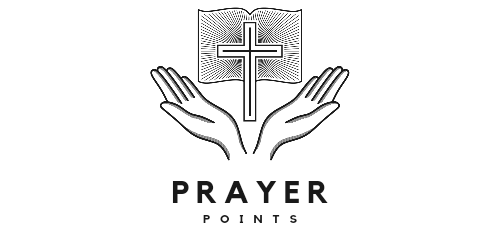Psalm 25 Sermon Notes
Prayer Points: Psalm 25 Sermon Notes, Which psalm should I memorize, What psalm is for good memory, What is most popular psalm, What is the most powerful psalm in the Bible, What is the easiest psalm, Is Psalm 78 the longest psalm, Psalm Prayer For Morning, verses in psalms to memorize, Psalm 25 Sermon Notes, Psalm 25 Sermon Notes, Prayer For My Soul And Mind, psalm 100, What psalm is good for sleep, What is the most powerful prayer for sleep, What is the night prayer for Psalms, What is the Psalm 91 bedtime prayer, Psalm 25 Sermon Notes, Which powerful psalm is for morning prayer, Which Psalm is good for morning, What is a powerful Bible verse for morning prayer, What is the powerful morning prayer to start your day, How do I pray for my soul, What is the best prayer for souls, How do you pray for a pure mind, What is the prayer for purity of mind body and soul, What are the 3 powerful prayers, How do I pray for myself, What is the hardest prayer, What are the 4 greatest prayers, What prayer did Elijah pray, Psalm 25 Sermon Notes.
Let’s Pray
In all of these texts, God teaches us humility, trust and joy in the presence of God. Learning nice little moral lessons, or memorizing factoids about God is not the point. Instead God invites us to be changed by divine mercy and love. The work of Psalm 25 is to express receptivity, or even to make us receptive. The Psalm can be used as a refrain to support the other texts, as a theme for prayer, or the focus of an entire sermon.
Originally, this Psalm was a Hebrew acrostic; that is, it began with the first letter of the alphabet, and ended with the last. But this is more than a word game. It is about God’s A- Z mercy in your life, even when you feel abandoned. Taken as a whole, Psalm 25 is a prayer for help, growing more intense as it progresses: “I am lonely and afflicted. Relieve the troubles of my heart, and bring me out of my distress. Consider my affliction and my trouble, and forgive all my sins. Consider how many are my foes, and with what violent hatred they hate me” (25:16-19). And the last petition is for the whole people of God: “Redeem Israel, O God, out of all its troubles.”
Through it all, Psalm 25 speaks of God’s character. “All the paths of the Lord are steadfast love and faithfulness, for those who keep his covenant and his decrees” (25:10). The New Interpreter’s Bible finds the Psalm’s theological center here, in God’s “steadfast love and faithfulness.” Unfortunately the lectionary text for Pentecost 16 stops just short of verse 10, but this can easily be corrected by extending the text as it is read, or printed, or projected on a screen.
We now turn to verses 1-9, the portion of the Psalm appointed for Pentecost 16. The Psalm begins in an attitude of worship: “To you, Oh Lord, I lift up my soul.” Lifting up the hands is an ancient posture of prayer, expressing our dependence on God. This simple gesture opens a person to receive God’s blessing. So too, the worshipper ‘lifts up’ her soul to receive God’s love. God’s love takes many forms and in Psalm 25:1-9 these include instruction and wisdom.
Repeatedly the Psalmist asks to be taught God’s ways. “Make me to know your ways, O Lord, teach me your paths” (verse 4). “Lead me in your truth, and teach me” (verse 5). “God instructs sinners in the way…and teaches the humble” (verses 5-6). To know about God is a starting point, but the Psalmist wants something more. The Psalmist wants to be with God, to walk in God’s path.
People want to be instantly gratified, but if we really need something we will wait for it. “For you I wait all day long” (verse 5). Waiting was hard for the Psalmist, who was in desperate need of help. Enemies were seeking to inflict harm. It seems that the enemies were external — the “wantonly treacherous ones” who put the Psalmist to shame (verses 2-3). Shame comes from outside and is inflicted by individuals or groups. But “enemies” may also be within us, for example, guilt or regret for the “sins of my youth or my transgressions” (verse 7). Pride can make us unteachable, but so can guilt and shame. Then we can’t move forward, can’t hear God’s voice of wisdom, or receive blessing and forgiveness.
And yet we may become most teachable when we are vulnerable, when our illusions of superiority and self-sufficiency have been stripped away (verses 16-19). So the Psalmist who implores God, “lead me in your truth and teach me.”
This is a relationship with God, a two-way communication in which the Psalmist both receives God’s teaching and dares to instruct God. The Psalmist tells God what to remember: steadfast love and mercy (verse 6). And the Psalmist tells God what to forget: “the sins of my youth” (verse 7).
In Jesus’ Name. Amen!.
My dog has the right idea. She takes the leash in her mouth when I take her for a walk, so that she can lead me. It is an endearing gesture and always makes me laugh. If this give and take happens between animals and humans, surely it happens between us and God. And as we live in that relationship, we wait, and receive, and lift our souls. We learn, change and grow more and more into the image of God in which we are created.
Original Prayer By “Walking Preacher”
Get More Powerful Prayer Points For Today and feel free to download Christian DJ Mixtapes.
